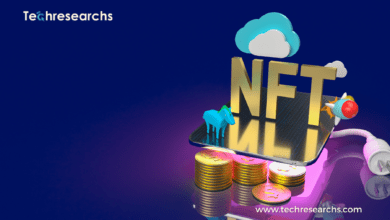Improving Accessibility To The Dlt: There Are 18 Blockchain Service Providers


Explore enhanced DLT accessibility with 18 blockchain service providers. Discover their innovative solutions.
Blockchain-as-a-Service (BaaS), a rising star in the business world, allows businesses to create and host blockchain apps and smart contracts in a blockchain ecosystem that is managed and controlled by cloud-based service providers.
BaaS is when a third party installs and maintains blockchain networks for a company’s technologies.
BaaS has become very popular recently since it offers a simple and direct way to “resolve complicated concerns around transparency, efficiency, and cost.”
The software, financial, and logistics sectors have been the fastest adopters. BaaS has gained so much traction that some of the biggest tech corporations in the world, like IBM, Microsoft, and Oracle, all have teams devoted to evangelization and integration.
Blockchain Service Provider
For many firms, combining BaaS and cloud services could be highly advantageous.
Thanks to BaaS technology’s adaptable customization options, businesses may address integration trouble points.
Whether it operates as a platform for smart contracts for a real estate company or a payment processing service for a shop, BaaS is having an impact on a variety of industries.
The 18 Blockchain Service Providers companies listed below integrate these ground-breaking ledgers into modern technologies.
PAYSTAND:
How PayStand uses blockchain: To guarantee immutability and audibility, PayStand integrates blockchain into the payment and recording processes.
The business installs networks that notarize certificates through its BaaS. (like diplomas, deeds, and receipts).
Additionally, it offers an admin platform that allows users to view their data in-depth and in real time. The PayStand network also automates cash management, accounting, and reconciliation as well as other aspects of the full financial process.
Dragonchain’s:
How it uses blockchain: Originally a division of Disney, Dragonchain’s BaaS platform is focused on safeguarding crucial business data and assets.
The startup uses serverless cloud architecture to enhance privacy and interoperability amongst blockchains that exchange a company’s most crucial data, such as finances.
BLOQ:
How it uses blockchain: Bloq provides a set of BaaS solutions that concentrate on important challenges in accounting, security, and authentication.
The software platform assists companies in creating and customizing the BaaS technology to meet their requirements.
A smart wallet, a platform for smart contracts, and a decentralized cloud to assist organizations to store and manage data are some of their particular blockchain products.
FACTOM:
Factom has two solutions specifically designed for BaaS for organizing and safeguarding essential documents.
A ledger program called “Factom Harmony” transforms papers into a single computerized platform to speed up and lower the cost of audits.
To authenticate and validate personal papers like birth certificates and land titles, Factom’s “dLoc” leverages encryption.
SYMBIONT:
How it uses blockchain: Symbiont makes its BaaS available to fintech firms across a range of industries.
The company’s blockchain is used by fintech companies and banks that provide mortgage and loan financing to authenticate the date of record creation and transparently record all payments on a ledger.
Symbiont can be used by crowdfunding websites and private equity firms to safeguard confidential documents and display real-time ownership of assets.
BLOCKSTRAM:
Blockstream’s BaaS develops scalable solutions for the Bitcoin ecosystem and protocol, which is how it uses blockchain.
The business’s Bitcoin processing software establishes a more extensive peer-to-peer financial system without the use of intermediaries.
tZERO:
To establish traceable, real-time movements in the banking sector, tZERO connects its BaaS ledger with financial platforms.
Together with its “Digital Locate Receipt” platform, the company’s tZERO security token enables financial institutions to distribute cryptocurrency and track it from the beginning to the conclusion of the spending process.
SKUCHAIN:
The Skuchain EC3 Platform integrates blockchain-based infrastructure into current IT procedures for the shipping and logistics sector.
How is it utilizing blockchain? Businesses can use a cloud environment, a blockchain protocol, and internal apps all at once thanks to the company’s ledger.
Skuchain’s BaaS instantly installs chain-of-custody tools and smart contracts, making it compatible with any supply chain workflow.
AMAZON WEB SERVICES:
Amazon Web Services (AWS) is a leader in BaaS across a wide range of sectors. For some of the biggest businesses in the world (including T-Mobile and PwC), the company integrates blockchain-based networks and business processes to enhance IT infrastructure, business processes, human resources, financial transactions, and supply chains.
The blockchain is adaptable enough to work in practically any environment thanks to the deployment of the company’s BaaS and the Ethereum and Hyperledger Fabric frameworks.
LeewayHertz:
How it uses blockchain: LeewayHertz provides a comprehensive range of blockchain-based services, including the installation and maintenance of hybrid ledgers as well as blockchain consulting.
The full spectrum of BaaS services is provided by LeewayHertz, from conception to installation. Decentralized applications (dApps) have already been created by the company for well-known brands including Disney, Budweiser, and 3M.
VironIT:
How it uses blockchain: VironIT provides a wide range of BaaS services, such as consultancy and the creation of mobile apps that use blockchain technology.
The company’s BaaS specifically includes everything from the creation of coins and digital wallets to the auditing and development of smart contracts.
ALTOROS:
Altoros uses blockchain to maintain documents, strengthen identity security, and automate workflow procedures.
The business has implemented blockchain in several sectors, including manufacturing, supply chain, energy, banking, and telecommunications.
These industries use permission blockchains, which can perform everything from reducing fraud to finding defective goods.
APPINVENTIVE:
Appinventiv provides a comprehensive array of blockchain-based tools and solutions for virtually every business.
The business creates dApps for several industries, including financial, logistics, healthcare, and entertainment.
Appinventiv has created more than 700 dApps in the previous four years, ranging from smart contracts to advancements in cryptocurrency wallets.
BLOCKAPPS:
BlockApps creates permission-based, security-focused BaaS solutions for business clients leveraging blockchain technology.
The business’s blockchain development environment can be set up in a matter of minutes and can run a node locally or in the cloud.
Blockchain solutions for everything from smart insurance contracts to fraud protection in ticketing tools have been developed using the BlockApps BaaS platform.
CRYPTOWERK:
How it uses blockchain: Blockchain-as-a-Service from Cryptowerk enables companies to build ledger-based products that encrypt sensitive information and establish a tamper-proof chain of custody.
The Cryptowerk Seal, a blockchain API, has been used for everything from collecting data from smart energy meters to tracking down shipment ID numbers and using ledgers to confirm the veracity of data and digital assets.
CLOVYR:
Clovyr is an ecosystem of blockchain applications that enables teams to explore, iterate, and release products rapidly and safely.
This is how it uses blockchain. Clovyr provides its users with improved immutability and authentication requirements by combining permissioned and public networks.
KALEIDO:
How it uses blockchain: Kaleido’s full-stack BaaS platform, which was developed with business networks in mind, enables organizations to swiftly set up and manage cloud-based blockchain networks.
Blockchains that transcend the Microsoft Azure and Amazon Web Services networks as well as any geographical region are used by Kaleido clients to manage various clouds.
INNOMINDS:
Innominds’ Blockchain-as-a-Service develops products for smart contracts and cryptocurrencies that enable businesses to build and test blockchain products, develop crypto solutions using Ripple, and maintain interledgers — protocols used for payments between blockchain networks. This is how it uses blockchain.
Learn more about What Is (BASS) Blockchain-As-A-Service?
In Conclusion: Blockchain Service Providers
The convergence of Blockchain and cloud-based services through BaaS heralds a new era of innovation and efficiency. By offering a simplified avenue for blockchain integration, BaaS empowers businesses to unlock new opportunities and streamline operations.
As BaaS continues to evolve and mature, its partnership with enterprises promises to reshape the landscape of innovation, growth, and secure data management, propelling industries into a future empowered by blockchain technology.







